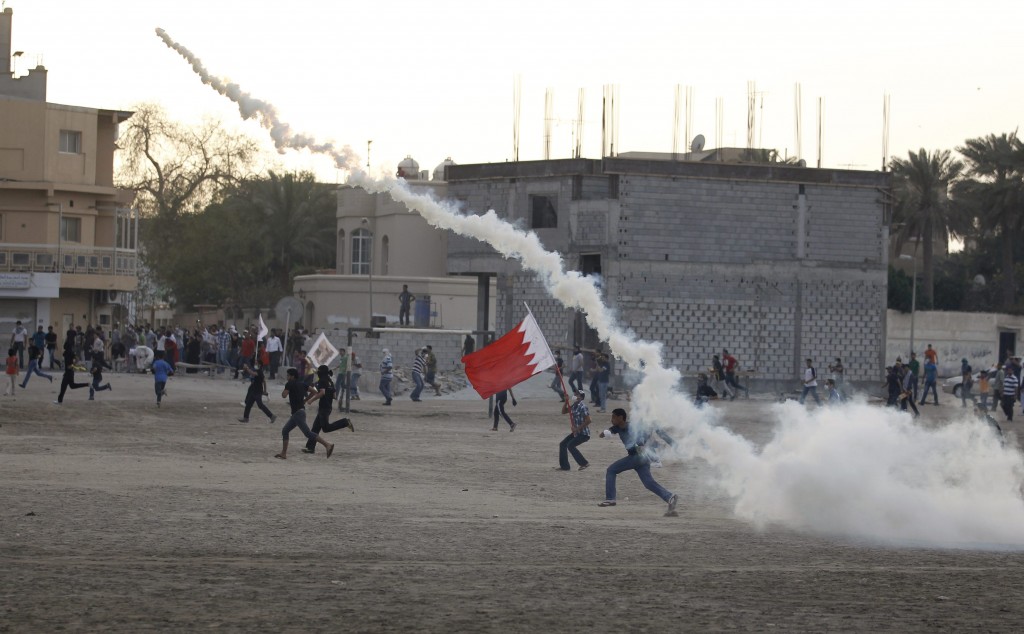Bahrain has experienced sustained political and social unrest in the past several years, as a result of the Arab Spring and longstanding injustices instituted by the royal family. The population has a Shi’ite Muslim majority, however the country is ruled by the Sunni royal family, which influences who is represented in government. Shi’as are vastly underrepresented.
Political demonstrations are illegal in Bahrain, and are regularly met with brutal crackdowns by state police forces. Thousands of people have been arrested for demonstrating against the state, and detainees may be subject to torture of various kinds. These brutal responses by police only strengthen dissenters’ resolve, and demonstrations continue to gain strength.
Demonstrators themselves are not the only ones subject to arrest, exile, intimidation and torture. “The arrests also extended to journalists and bloggers who reported on the crackdown, and medical personnel who treated injured protesters. Thousands of people were fired from their jobs for supporting the uprising.” Organizers of human rights NGOs are often arrested and set up with fabricated charges, resulting in either lengthy prison sentences or exile.
Media ownership in Bahrain is far from an ideal situation, and the state owns all broadcast media. What few private newspapers exist are owned by businessmen close to the royal family. The government has a great deal of control over what is printed and broadcast, not only censoring unfavorable stories but fabricating and shaping news reports to cast a positive light on the regime and a negative one on human rights organizations and other NGOs. “Self-censorship is encouraged by the vaguely worded 2002 Press Law, which allows the state to imprison journalists for criticizing the king or Islam, or for threatening ‘national security.’”
The state blocks certain websites that it finds to be unfavorable, and has sentenced bloggers and other journalists in absentia for crimes against the state. The 2002 Press Law is vaguely worded and allows for a wide breadth of interpretation, allowing it to be applied to virtually any situation the king deems appropriate. Access to the country by foreign news media has also been restricted, with individual journalists being blocked from entering the country. Other journalists who have been allowed to enter the country have been arrested and deported for reporting on events contrary to the royal family’s wishes.
The King has total control over the judiciary, and virtually all other aspects of government. All laws are drafted by the king’s cabinet members, who are appointed by him, such that the king has control over what laws are written, how they are written, how they are implemented, and how they are enforced. Women are also vastly underrepresented in government and are generally not subject to the same protection under the law as men. Bahrain has scored a rating of “Not Free” by Freedom House, and ranks 53 out of 176 countries surveyed in Transparency International’s 2012 Corruption Perceptions Index.
source
